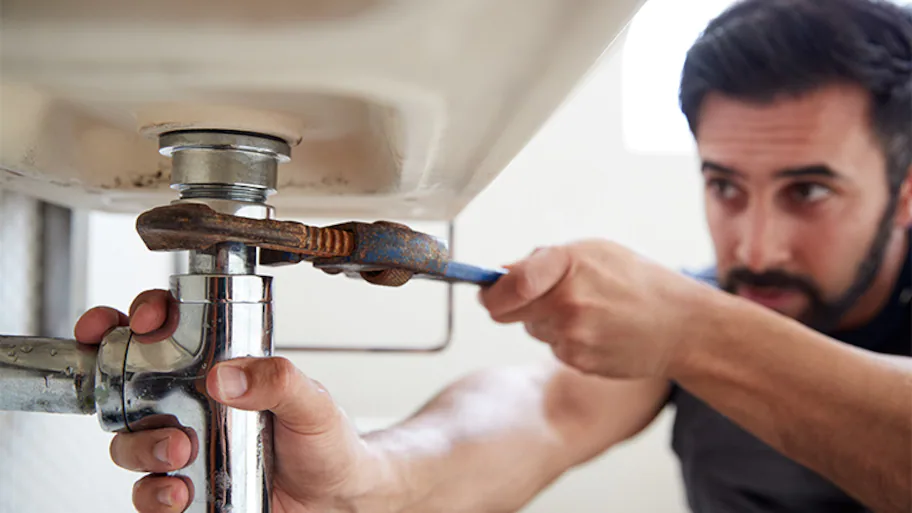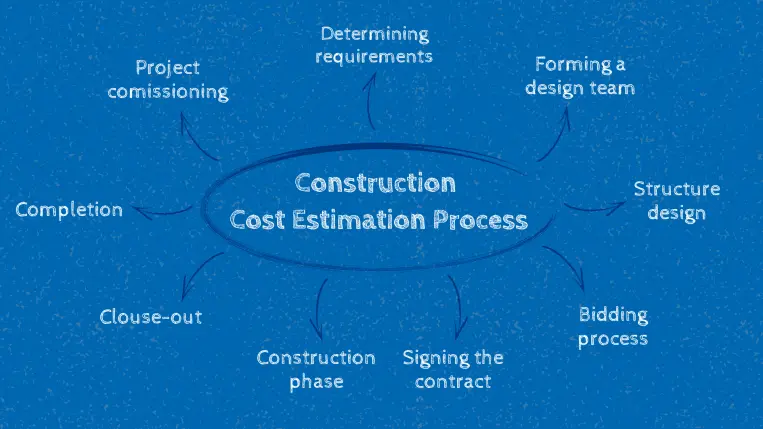The Hidden Costs of Leaky Pipes and Faucets
Leaky pipes and faucets are more than just a minor annoyance—they can be stealthy financial drains on your household budget.
For homeowners, property managers, and DIY enthusiasts, understanding the hidden costs associated with these common plumbing issues is crucial.
This blog post will explore not only the financial implications of leaks but also provide practical tips for quick repairs that can save you time, money, and headaches.
Understanding the Impact of Water Leaks
Water leaks might seem trivial at first, but they can have long-lasting effects on your property and finances. Even the smallest drip can waste significant amounts of water over time, leading to higher utility bills. Addressing these leaks promptly can prevent further damage, such as mold growth or structural deterioration.
Leaks can also cause unseen structural problems. Over time, water can weaken the integrity of walls and floors. This not only affects the aesthetic appeal of your home but can also pose serious safety risks. Regularly checking for leaks and addressing them quickly helps protect your home’s value and ensures a safe living environment.
Beyond the immediate damage, leaks can significantly increase your water bill. According to the Environmental Protection Agency (EPA), the average household can waste nearly 10,000 gallons of water each year due to leaks. Fixing even simple leaks can result in a 10% reduction in water bills, making it a cost-effective measure for any homeowner.
Common Causes of Pipe and Faucet Leaks
Understanding the root causes of leaks is the first step in preventing them. One common culprit is worn-out seals. Faucets contain small rubber O-rings that form a watertight seal. Over time, these rings can become brittle and cracked, causing leaks around the faucet handles.
Another frequent cause of leaks is corrosion. Pipes and faucets made from certain materials, like copper or brass, can develop rust over time. This corrosion weakens the metal, leading to tiny holes that allow water to escape. Regular inspections can help identify corroded areas before they become major issues.
Lastly, high water pressure can force water through even the smallest openings. While high pressure may seem like a luxury, it can put undue stress on your plumbing system, increasing the likelihood of leaks. Installing a pressure regulator can help maintain an ideal pressure level and extend the life of your plumbing fixtures.
The Financial Toll of Neglected Leaks
Neglecting leaky pipes and faucets can lead to significant financial burdens. The most direct cost is the increase in your water bill. Even a small leak can waste hundreds of gallons of water each month, translating to higher monthly expenses.
Beyond increased utility bills, leaks can necessitate costly repairs. If water seeps into walls or floors, it can cause mold growth and structural damage. These issues often require professional remediation, which can be expensive and time-consuming.
In addition to repair costs, leaks can also decrease the value of your property. Prospective buyers may view a history of plumbing issues as a red flag, potentially lowering your home’s market price. By addressing leaks promptly and maintaining your plumbing system, you can preserve your property’s value and make it more appealing to future buyers.
Quick Fixes for Leaky Faucets
Fixing a leaky faucet doesn’t always require professional help. With a few basic tools and some simple steps, you can tackle many common issues yourself. First, turn off the water supply to the affected faucet to prevent further leakage while you work.
Next, remove the faucet handle to access the O-ring or washer. Inspect these components for signs of wear and replace them if necessary. Be sure to choose the correct size and type of replacement parts for your specific faucet model to ensure a proper fit.
Finally, reassemble the faucet and turn the water supply back on. Check for any remaining leaks and ensure the faucet operates smoothly. By performing these simple repairs, you can extend the life of your faucet and prevent water waste.
DIY Solutions for Pipe Leaks
Addressing pipe leaks often requires a bit more effort, but it’s still possible to handle many issues on your own. Start by identifying the source of the leak. This may involve inspecting the length of the pipe for visible cracks or damp areas.
Once you’ve located the leak, consider using a pipe repair clamp. These clamps offer a temporary fix by sealing small cracks and preventing further leakage. However, it’s important to remember that a more permanent solution may be needed in the future.
For a more long-term fix, you might need to replace the leaking section of pipe. This process can be more involved, requiring cutting and fitting new pipe segments. If you’re unsure about tackling this project yourself, consulting a professional plumber can ensure a successful repair.
When to Call a Professional
While many leaks can be addressed with DIY solutions, some situations warrant professional assistance. If you’re dealing with extensive damage or suspect a hidden leak behind walls or under floors, it’s best to call a licensed plumber.
Professional plumbers have the tools and expertise to diagnose and repair complex plumbing issues. They can also identify potential problem areas that may not be immediately apparent, helping you avoid future leaks and costly repairs.
Additionally, if your attempts to fix a leak have been unsuccessful, a professional plumber can provide a more permanent solution. Don’t hesitate to seek expert help—it’s an investment in your home’s long-term health and safety.
Preventive Measures for Leak-Free Plumbing
Preventing leaks is often easier and more cost-effective than repairing them. Regular maintenance is key to keeping your plumbing system in top condition. Conduct routine inspections of pipes, faucets, and other fixtures to catch potential issues early.
Consider investing in high-quality plumbing materials. Durable materials are less likely to corrode or wear out, reducing the risk of leaks. Additionally, installing water pressure regulators can help prevent stress on your plumbing system, extending its lifespan.
Finally, educate yourself about your home’s plumbing system. Understanding how it works and what to look for can empower you to address minor issues before they become major problems. By taking proactive steps, you can enjoy a leak-free home and avoid unnecessary expenses.
The Environmental Impact of Water Waste
Water leaks don’t just affect your wallet—they also have significant environmental consequences. Wasted water contributes to the depletion of local water resources, putting additional strain on ecosystems and communities.
By fixing leaks promptly, you can help conserve water and reduce your environmental footprint. It’s a simple yet effective way to contribute to a more sustainable future, benefiting both current and future generations.
Additionally, water conservation can have a positive impact on your community. Reducing your household’s water usage helps decrease demand on local water supplies, ensuring there’s enough for everyone.
Additional Impacts of Leaks
In addition to the financial and environmental consequences, leaks can also create conditions conducive to pest infestations. Damp environments attract pests such as cockroaches, ants, and termites, which can damage your property and pose health risks. In areas like Salt Lake City, professional pest control services can be essential for addressing infestations exacerbated by plumbing leaks. By fixing leaks promptly, you can help prevent these unwanted visitors and maintain a healthy, pest-free home. For residents in the area, considering pest control in Salt Lake City could be key to managing and mitigating these issues efficiently.
The Role of Technology in Leak Detection
Advancements in technology have made it easier than ever to detect and prevent water leaks. Smart leak detection systems can monitor your home’s plumbing 24/7, alerting you to potential issues before they escalate.
These systems use sensors to track water flow and pressure, identifying unusual patterns that may indicate a leak. By receiving instant notifications, you can take action quickly and minimize damage.
Investing in a leak detection system can provide peace of mind and protect your home from costly repairs. It’s a worthwhile addition to any homeowner’s toolkit, offering an extra layer of protection against leaks.
Encouraging a Leak-Free Lifestyle
Promoting a leak-free lifestyle requires awareness and action. Start by educating yourself and your family about the importance of fixing leaks promptly. Encourage regular inspections and maintenance to keep your plumbing system in top shape.
Consider hosting workshops or events in your community to spread awareness about the impact of water waste. Sharing tips and resources can empower others to take action and make a difference in their own homes.
Together, we can create a culture of conservation and responsibility. By prioritizing leak prevention and repair, we can protect our homes, save money, and contribute to a healthier planet.
Leaky pipes and faucets may seem like minor inconveniences, but their hidden costs can add up over time. From increased utility bills to potential property damage, ignoring leaks can have serious consequences. By understanding the impact of leaks, taking preventive measures, and addressing issues promptly, you can protect your home and wallet.
If you’re interested in learning more about maintaining a leak-free home or exploring new technologies for leak detection, consider reaching out to local experts or joining online communities. Together, we can make a positive impact and ensure a sustainable future for all.
Remember, a little maintenance goes a long way in preventing leaks and saving water. Make it a priority in your home, and you’ll reap the benefits for years to come.






